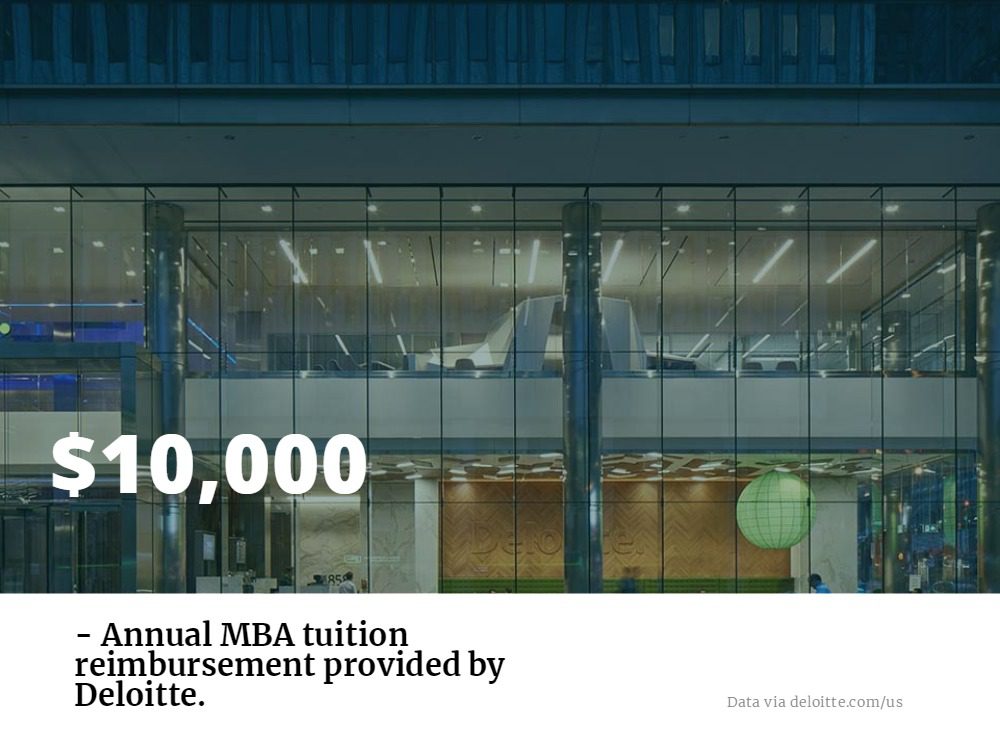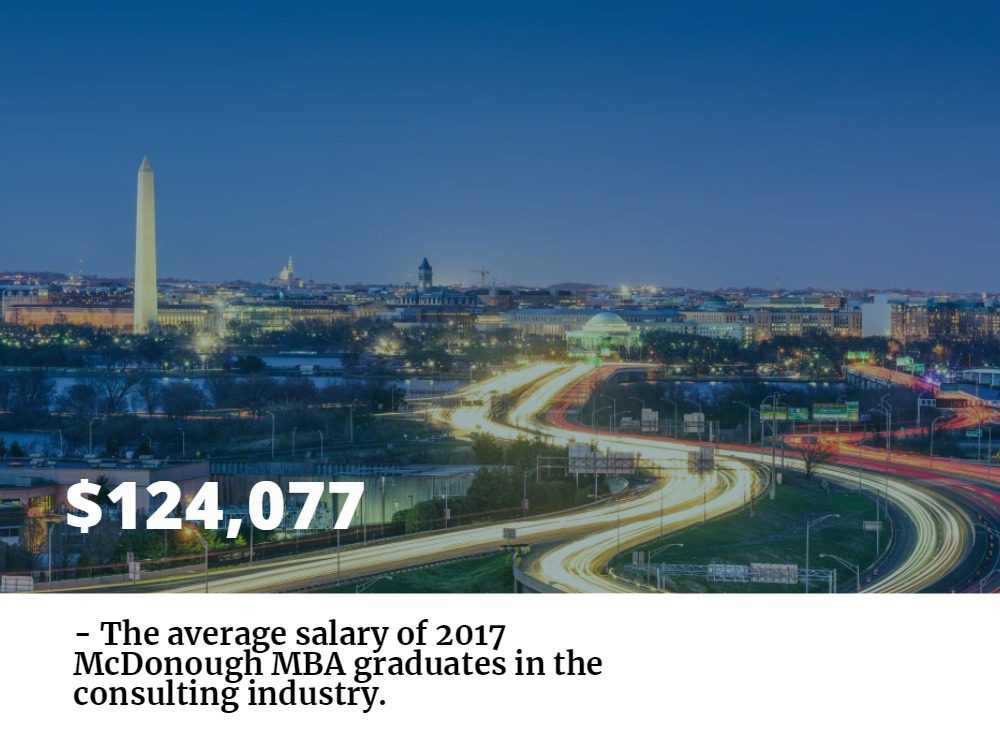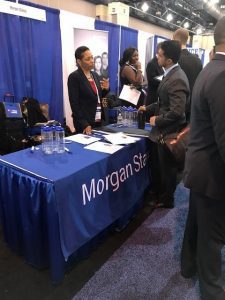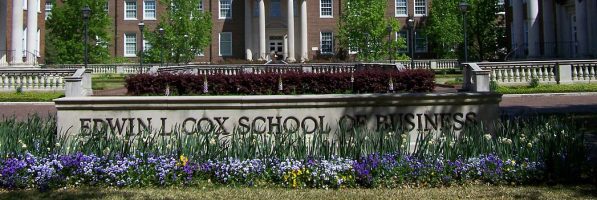What is the Most Valuable San Francisco MBA?

There’s no doubt: San Francisco is a great city to earn your MBA. Located near Silicon Valley, business schools throughout the area provide not only an excellent education but also opportunities to interact with many tech and industry leaders in the area. But which MBA programs in San Francisco are the best?
This is not an easy question to answer. You can check rankings, to see which MBA programs perform well based on surveys and statistics provide to The Financial Times, U.S. News and World Report, and The Economist. And that’s a great place to start, but probably the most essential value when determining the right MBA program for you is your return on investment (ROI).
The ROI of an MBA program is one of the best indicators of what your MBA is actually worth. It looks at statistics such as average salary increase, post-graduation employment, tuition cost, cost of living, and more. To help you out, we looked in-depth at the best business schools in San Francisco to see which offer the best ROI. Continue reading…
How to Get Your Employer to Pay For Your MBA

Earning an MBA holds tons of value in the business world—an advanced business degree can open doors that may otherwise have been closed, and boasts a high return on investment thanks to the top-level salaries that MBAs command.
Graduate school—and all of the coursework that comes with it—can be an intimidating challenge, but paying for it doesn’t have to be. Aside from scholarship, grant and fellowship opportunities at business schools across the country, more and more companies are placing a higher importance on tuition reimbursement programs, and expanding opportunities for paid MBA tuition reimbursement.
How can you get your employer to pay for your MBA studies? Let’s take a closer look.
Getting Your Employer to Pay For Your MBA
First thing’s first: You need to find out if your current employer offers tuition reimbursement to its employees. The terms of reimbursement vary depending on the company, with some corporations not offering any sort of program at all. Those that do offer some sort of compensation may do so on a course-by-course basis, or as a lump-sum reimbursement package for coursework in relevant degree plans.
“Organizations typically support MBA pursuits for two reasons,” J. Todd Rhoad, managing director of Atlanta’s BT Consulting, told USA Today. “Employee development and succession planning. In the first case, companies support the cost of MBA programs as part of their commitment to employee training and development.”
If you want to convince your employer that your education is worth investing in, you’ll need to show that earning an MBA will further your business acumen and understanding of your industry, and ultimately help your company reap those benefits.
“Usually, an employee has to already been delivering great results within the company,” Roderick Lewis, international relations director at the ISCTE Business School, University Institute of Lisbon, told Business Insider.
“If you haven’t already convinced your company, then asking them to [sponsor your education] becomes really difficult,” Lewis says.
USA Today also outlined a few checkboxes to hit when determining how valuable earning an MBA would be for your organization:
- Do current members of middle or upper management hold advanced business degrees?
- Does your company have the available revenue to invest in employee education?
- Would someone with the type of advanced training you seek bring clear advantages to the company?
If those point hold true in your situation, then start researching which programs specialize in providing the skills that your company needs. Keep in mind: You do not have to limit yourself to business schools in your metro thanks to popularity of Online MBA programs. There may have once been a stigma against online programs, but the of the matter fact is that many of the top online MBAs on U.S. News & World Report’s annual rankings also rank highly on the publication’s top campus-based graduate business programs list.
Some of these schools include:
- University of North Carolina – Chapel Hill (Kenan-Flagler)
- Indiana University – Bloomington (Kelley)
- Temple University (Fox)
- Arizona State University (Carey)
- University of Florida (Hough)
- Carnegie Mellon University (Tepper)
- University of Texas – Dallas
Once you’ve found the right program, you’ll want to craft a brief proposal for your employer. In it, you’ll want to mention how you fit the company’s tuition reimbursement policy, and list the advantages that continuing your education can bring you and your company. Don’t shy away from providing data on how much assistance you may need and how this investment will pay off for everyone, while also ensuring your employer that you’ll remain committed to the company during your degree program, or won’t jump ship after earning your degree.
“A proposal should address the benefit to the company,” Rhoad says, “(including) areas where the company could improve and how you will help them, a review of the courses to be taken and how they will provide knowledge that can help improve the company’s performance.”
Companies That Provide MBA Tuition Reimbursement
Investopedia recently compiled a list of companies have stated that they place a high value on their tuition assistance benefits, and provide tuition reimbursement for the educational costs of an MBA.
According to Investopedia, consulting companies lead the market in tuition reimbursement programs for MBA courses. These firms also pay the highest salaries for MBA alumni. Deloitte has the most robust tuition reimbursement plan, providing employees with up to $10,000 per year in MBA reimbursements. The firm requires two years of work with the company and a commitment to work for the company after graduation in order to receive the tuition assistance benefit.

Financial institutions and banks also place a high value on employees with MBAs, and provide tuition assistance. One example is Bank of America, which provides employees with annual tuition assistance of up to $5,250 for advanced degree coursework. Wells Fargo also has a track record of paying for MBAs, doling out up to $5,000 annually for tuition expenses.
The booming tech sector is also hiring MBAs left and right, with some firms developing their MBA talent in house by offering to pay MBA tuition expenses. Apple tops the list of tech companies offering tuition assistance, providing reimbursement of up to $5,000 annually. MBA degrees are even more coveted in the the specialty defense technology sector, as Raytheon, one of the top defense technology companies in the world, offering to pay up to 100 percent of employees’ college tuition for graduate school.
Other leading companies offering tuition reimbursement to employees include:
- Chevron: A market leader in the energy sector, Chevron offers offers tuition reimbursement of up to 75 percent for its employees.
Ford: Ford’s education tuition assistance program provides employees with tuition reimbursement of up to $5,000 annually for an MBA. - Procter & Gamble: This firm has one of the leading tuition reimbursement benefits in the consumer goods industry, providing reimbursement for up to 80 percent of educational costs with a limit at $40,000.
- AT&T: This telecom giant provides employees with up to $5,250 annually for tuition assistance, for a maximum reimbursement of up to $25,000 for graduate school courses.
Georgetown McDonough MBA Career Center Releases 2017 Employment Stats

No surprise: Georgetown MBAs are making bank!
According to the most recent employment report from the Georgetown University McDonough School of Business, the average starting salary for graduates was $112,501, which is a 4 percent increase from the previous year.
“Every year, we deepen our commitment to applying a personalized approach to our students’ job searches, and every year, the results exceed our expectations,” Doreen Amorosa, associate dean and managing director of the MBA Career Center, said. “From the expanded and customized approaches to the job search in the MBA Career Center to curricular offerings like our Executive Challenge, our MBA students are prepared to excel in their careers.”
Additionally, the report stated that the average signing bonus of recent McDonough graduates were $28,516, a 13 percent increase from last year. Job offers accepted within three months of graduation also rose from 90 to 92 percent.
The report provide some addition, equally interesting information. For example, the top four industries of choice for Georgetown McDonough MBAs are financial services (33 percent), consulting (28 percent), technology (13 percent), and non-profit/social impact sector (7 percent).
MBA graduates in the consulting industry are the highest earners among recent McDonough alums, pulling in over $124,000 annually, followed closely by those employed in the healthcare industry, which earned nearly $121,000 per year. In all, McDonough MBA grads included in the report earned lucrative positions at well-known companies, like Amazon, Bank of America, Barclays, Citi Group, Credit Suisse, Deloitte, EY, Google, PwC, and Verizon.

As far as internship data goes, 99 percent of first-year students secured an internship, with 85 percent of those paid positions. The average monthly compensation for internships was $6,501. Perhaps most impressive was that 81 percent of these internships were facilitated by the MBA Career Center, which is up 13 percent from 2016.
The Georgetown McDonough MBA Career Center is home to student organizations, Career Days and Treks, and on and off-campus networking events. The center partners with McDonough School of Business alumni to connect the future business leaders of America with today’s movers and shakers.
“We have invested in numerous strategic initiatives in recent years, including customizable search technologies, alumni mentoring tools, and offerings designed to individualize each student’s career outcomes,” Amorosa added in the press release. “Those, combined with our staff of certified career coaches and career curriculum that begins the summer before students arrive on campus, we equip our students with the strategies and experiences to be successful in their search.”
The Top 5 Reasons Diversity MBA Conferences Should Be on Your Recruiting Calendar

Pictured above: Tuck second-year MBA students Bianca Goins, Sadé Lawrence, and Jodine Gordon.
More than 10,000 MBA students, business school representatives, recruiters, and business executives filled the Pennsylvania Convention Center in Philadelphia late last month for one of the largest career conferences serving minority professionals. The conference has been around since 1970, but for the first time this year the National Black MBA Association (NBMBAA) and Prospanica, the association of Hispanic professionals, joined forces to present it. The result was an incredible opportunity for attendees to network with companies and each other, take advantage of career development programming, and interview for and secure job offers from hundreds of companies spanning multiple industries.
Cornell’s S.C. Johnson Graduate School of Management had a group of approximately 55 students attend, a mix of first-year and second-year students, according to Cynthia Saunders-Cheatham, Executive Director of Johnson’s Career Management Center.
“It was double what we have had in recent years, and perhaps the largest attendance we ever had for an MBA diversity conference,” she said. “Having a joint NBMBAA/Prospanica conference, in addition to the Philadelphia location that was driving distance away [from Ithaca, NY, where Johnson is located], helped to drive attendance.” The connections that students made while there have already resulted in multiple job offers, she added.
While securing a job or internship is a primary reason many MBA students choose to attend the National Black/Prospanica conference and others like it, that’s just one of many potential benefits events like this offer. Given that this most recent conference was right here in our hometown of Philadelphia, we went to check things out for ourselves. Through conversations with attendees, school representatives, and recruiters, we’ve compiled the following list of reasons why this year’s crop of applicants should be sure to add diversity MBA conferences to their recruiting calendar next summer and fall.
1. Unparalleled Recruiter Access—Including Many That Don’t Come to Campus
The Career Expo, which took place on the last two days of the five-day National Black/Prospanica conference, filled a cavernous hall in the Convention Center and included booths from close to 300 companies spanning dozens of industries. Among them were coveted post-MBA tech employers like Google and Amazon, consulting industry leaders including Bain & Company and Accenture, and financial services firms such as BlackRock, Bank of America, and Morgan Stanley. There was a continuous gaggle at the Google booth, and one of its MBA internship recruiters, Tanya Choudhury, had to resort to wearing a sign by the second day explaining that she’d lost her voice.
Big pharma and healthcare were also well represented, with booths attended by recruiting representatives from drug maker AstraZeneca to medical products and equipment company Zimmer Biomet and many in between. Leading consumer packaged goods (CPG) firms including PepsiCo, General Mills, and Proctor & Gamble were also there, as were oil and gas giants like BP, Chevron, and Exxon.

Morgan Stanley was one of almost 300 exibitors in the conference’s packed Career Expo.
But there were also plenty of organizations that are perhaps less top of mind as potential MBA recruiters—the Central Intelligence Agency, the U.S. Department of State, Teach for America, and USAID, for example—who were just as eager to share how highly they value the MBA skillset. Dozens of leading business schools also had booths, largely to provide support and serve as gathering places for students who were attending, but also with an eye out for promising diverse talent. For example, Roberto Martinez, a Senior Talent Acquisition Consultant for Dartmouth College—home to the Tuck School of Business—was eagerly distributing glossy handouts touting the school’s varied career opportunities, commitment to diverse hiring practices, and excellent benefits. “We’re here not only to support students but also to hire more diverse staff to campus,” he said.
For Tuck second-year MBA student Bianca Goins, the breadth of companies at the expo was a big part of the draw. “I wanted a diverse group of companies to look at in a single spot,” she said. “There are so many companies here, and as second-year you can really come and pick and choose the experiences you want to have.”
Tiffany Anderson, a second-year student at Emory’s Goizueta Business School, was also impressed by the sheer number of companies present. A self-proclaimed conference veteran, she also attended National Black last year, as well as conferences presented by the Forté Foundation, the Consortium for Graduate Study in Management, Management Leadership for Tomorrow, and JumpStart. “Out of all the diversity conferences, I would certainly say this is the flagship,” she said. “Wow! There are A LOT of companies here,” she recalled thinking to herself as she walked in. More so than last year, before National Black and Prospanica teamed up, she added.
“I have seen the most people—students from many different schools and recruiters from many different functional areas of interest,” she continued. “It seems to be the most diverse in terms of attendees, degree of programming, and companies in attendance. For the majority of people, this is going to be one of the best to attend.” Anderson estimates that there were probably 30 or so Goizueta students there, a mix of first- and second-years.
2. Multiple Touch Points and Opportunities for Face Time
For some students, certainly, the primary purpose in attending the conference is to land a job. Second-year IU Kelley School of Business MBA student Henrique Barbosa, a native of Brazil pursuing travel hospitality, had a simple answer when asked why he was there: “To get a job!” He acknowledged that most of the firms he was interested in only conduct first-round interviews at the conference followed by second-round interviews on site, which lessened the likelihood of his leaving with an offer in hand. “But it would be great if it happened,” he said.
But several other students were less interested in job or internship offers—or even in early round interviews. For Jodine Gordon (Tuck ’18), the biggest factor in her decision to attend was hearing success stories from Tuck grads whose higher-level touch points with conference recruiters later helped them secure offers. “I have a couple companies on my list, but really I just want to meet as many people as possible so they can get to know me and I can get face time,” she said.
Sadé Lawrence, also a second-year student at Tuck, was likewise attracted by the opportunity to get in front of recruiters in person. “For a lot of opportunities you might be interested in, you start online at a website, applying through data base,” she said. “But coming here they now have a face with your name, and there are all kinds of organic connections that can happen,” she added. “It’s kind of amazing that you are able to build connections with people even at such a big conference, but you are. You make contacts and get lots of face time—so much more so than you can blindly through a website,” she continued. “What I have heard more of is people have an interaction with a recruiter here that leads to an interview later—here is more about entering the pipeline.”
Tuck’s Goins has taken the opportunity to network with recruiters who don’t make it to Tuck’s campus, but also those who do. “With every interaction, you are getting a more nuanced understanding of the company and can take that information and use it in subsequent interactions.”
3. Valuable Chances to Network with Peers
Goizueta’s Anderson interned in operations at Google over the summer—an opportunity she got through another diversity conference—and has been offered a full-time position on the tech giant’s Mountain View campus after she graduates. Despite having that full-time offer in hand, attending the conference still made lots of sense.
Kelley School second-year student Luis Vilchez Kupres, a native of Peru, also converted his summer internship—in supply chain operations at Cummins—into a full-time offer. So his reasons for attending the conference were not to get a job. ”I am here to support fellow Kelley first- and second-years and network a little more,” he said. He also gets to reconvene with students from other schools he met at last year’s Prospanica conference. “Often, you connect with somebody and they will help you connect with someone else,” he said. “Networking definitely helps—even among other MBA students.”

Tiffany Anderson, Goizueta MBA ’18, a diversity MBA conference veteran
For the Google-bound Anderson, the value of peer networking can’t be stressed enough. Being able to connect with students from other schools is the part she finds most enjoyable—but it’s also strategic. “When candidates are selecting a school they like to look at the size of the network they are going to get—and that’s great,” she said. “But the way I see it, I don’t have to be at Stanford or Wharton because I have friends at Stanford and Wharton. So in a way that’s kind of my network, too.”
“You have that domino effect,” she continued. If she’s trying to connect with someone at a company where she doesn’t have a contact or her classmates don’t have contacts, she can reach out to a friend at another school to see if there’s someone in their network. “Some might say, ‘Well, they’re a peer, they’re not an employer, they’re not going to get me a job.’ But there is so much more benefit to expanding your network. I don’t think everyone understands that.”
Of course, peer networking can be a two-way street. “My motivation to expand my network comes from wanting to help others as well,” Anderson said. “When you are part of these diversity networks, one of the great things is you are going to have a friend who says, ‘Do you know someone who can help me with this?’ And I can say, ‘Well, I met someone at a conference who does that very thing and I’m happy to put y’all in touch.’”
Vault’s Top Investment Banks for MBAs to Work for in 2018

While a career in investment banking may not be as highly sought after anymore among MBAs, it’s still a fairly popular option. And according to a U.S. News interview with Jeff McNish, Assistant Dean of the Career Development Center at the University of Virginia’s Darden School of Business, investment banks and consulting firms are raising their compensation offers to draw in more students. These companies are willing to pay a premium to draw MBA talent. The question is, which are the best investment banks to work for?
Vault Banking 50 recently released its annual ranking of the best investment banks in North America. The list was compiled through a survey of 2,400 banking professionals and used a weighted formula to review such issues as quality of life—including culture, satisfaction, work/life balance, training, and compensation—and overall prestige.
This year, Goldman Sachs took the #1 spot—with a score of 8.380—maintaining its title of “best investment bank to work for.” Coming in at a close second was Evercore (8.311), followed by Centerview Partners (8.308), and Morgan Stanley (8.114).
The top 10:
- Goldman Sachs
- Evercore
- Centerview Partners
- Morgan Stanley
- Moelis & Company
- Greenhill & Co.
- Lazard
- Perella Weinberg Partners
- Bank of America
- PJT Partners
Goldman Sachs Still #1
This was the second year in a row that Goldman Sachs took the top spot, with survey responders saying such things as: “The firm is extremely focused on improving work/life balance. In the time that I’ve been here, I’ve seen a tremendous difference, not only as a result of formal policies but also in the culture and mindset of those who work here.”
Respondents also said that Goldman Sachs provided workers with various benefits including “exposure to talented, thoughtful, respectful colleagues” and “challenging, intellectually stimulating assignments.” Even respondents at Goldman Sachs’ competitors had mostly nice things to say. They called the firm “a finance machine” and “the gold standard.”
Other elements that set Goldman Sachs apart include its protected-weekend-day policies for junior bankers, no-working-past-midnight policies for interns, and fast-track promotions. It was also one of the first banks to provide a modern performance review system as well as to implement video interviews during on-campus recruiting.
Other Investment Banks Making Waves
As for Evercore, it rose two places in 2018 from #4 to #2. Much of its rise in placement was due to its increase in prestige as well as the company’s focus on a better working environment for its employees. In fact, Evercore came in first place in two areas: formal training and informal training.
As for what some of the survey respondents had to say about Evercore: “We have an outstanding, very teamwork-oriented, and collaborative culture. The firm is filled with very intelligent people treating each other with respect and working together to give clients the best advice possible. The atmosphere is very positive—lots of high fives on wins and no dressing-down calls if you miss a piece of business.”
In third place, Centerview Partners is a small boutique investment banking firm. Insiders stated that the firm is filled with “extremely talented, smart, and thoughtful senior bankers” and that “deal opportunities are unparalleled.”
Another boutique investment bank to make it to the top of the list was Moelis, which ranked fifth. The firm rose four places this year thanks to its “great culture” and “smart dedicated people.”
Investment Banks Focused on Diversity
The Vault Banking 50 also measured firms’ focus on diversity. Loop Capital Markets led the way for the second year in a row, coming in first for overall diversity, minority diversity, female diversity, and LGBT diversity. However, following close behind were Evercore (which placed #2 in overall diversity, female diversity, and minority diversity) and Goldman Sachs (which placed #3 for overall diversity, minority diversity, and LGBT diversity).
To see the full report, visit the Vault.com.
This article has been edited and republished with permissions from Clear Admit.
SMU Cox Names Ana Rodriguez Director of Latino Leadership Initiative

Ana Rodriguez, alumna of the Southern Methodist University Cox School of Business in Dallas, Texas, was recently named as the school’s newest Director of the Latino Leadership Initiative.
